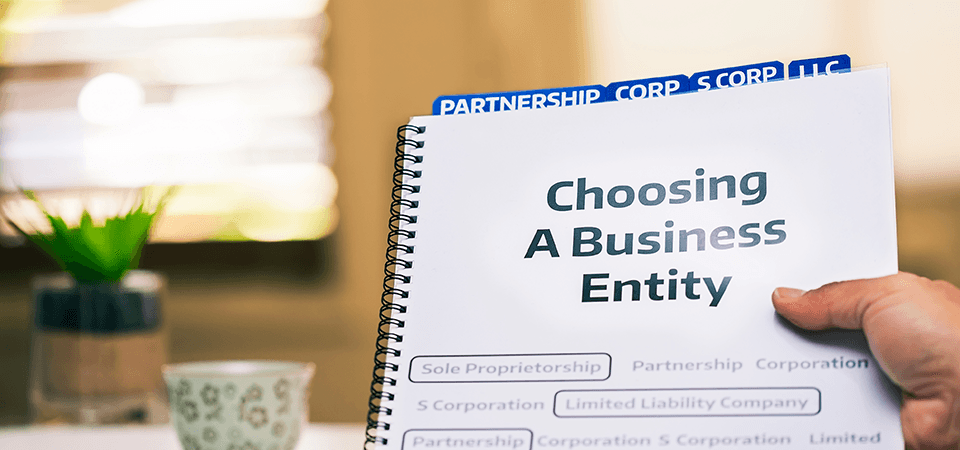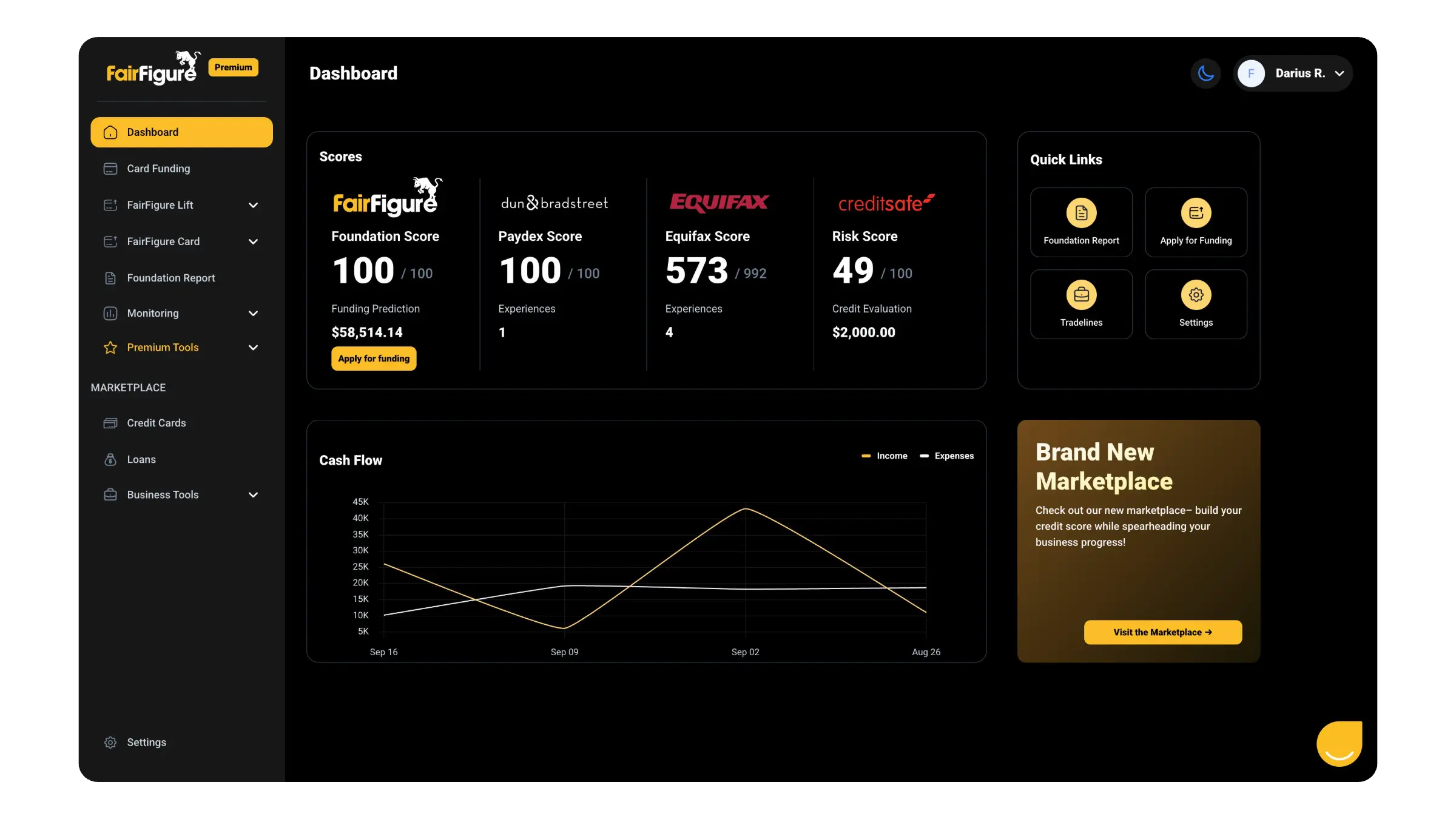What Exactly Is a Trade Reference?
Author: Nick Mann
January 23, 2026
9 min read
TABLE OF CONTENTS
- 1. Trade Reference Letter Example
- 2. How Do I Get a Trade Reference?
- 3. New Business
- 4. Existing or Established Businesses
- 5. How can a Good Trade Reference Help Me?
- 6. Is a Good Trade Reference All I Need to Get Business Credit?
- 7. Do I Need a Trade Reference to Get a Business Credit Card?
- 8. Is There A Difference Between a Trade Reference and a Good Business Credit Score?

Start your credit building journey for your business

A trade reference meaning is feedback from a trusted third party, like a supplier or vendor, detailing a company’s payment history. It shows if a business customer pays their bills on time to their supplier.
Sometimes a simple verbal reference is enough. Other times something more formal is required that shows proof of a customer’s payment history.
This can take the form of a trade reference letter or reporting history to a commercial credit reporting agency such as Dun & Bradstreet, Experian, Equifax, CreditSafe, or FairFigure.
As with personal credit scores, which a lender runs to check an individual’s eligibility for a loan, a strong commercial payment history by a customer, i.e. a good trade reference, could result in that company being approved for a business loan.
Many small business owners new to business credit wonder what a trade reference letter looks like, so we included an example below.
Trade Reference Letter Example
[Date]
Dear John,
I’m writing to provide a trade credit reference for Evergreen Solutions, located at 123 Main Street. We’ve had the pleasure of having a business relationship with Evergreen Solutions since 4/1/2023, as their supplier of office equipment.
During this time, Evergreen Solutions has maintained an account with us and has proven to be an extremely reliable customer.
We’ve offered this small business net-30 payment terms, and they’ve consistently made all of their payments on time and have never had a single late payment.
Of their available $20,000 credit limit, the highest amount they used was $5,000, which they paid through ACH. As of the time of this writing, they have no outstanding balance, with the payment of our most recent sale from 3/15/24 being made on 3/31/24.
Throughout our relationship with this business owner, they’ve never defaulted on their trade credit account and we’ve only had positive payment experiences with them.
We’ve also found them to be great communicators and have generally enjoyed partnering with them. Based on our experience, we consider Evergreen Solutions to be a creditworthy customer and recommend them for your credit offerings.
If you have any questions or need additional credit information regarding their creditworthiness, please don’t hesitate to reach out to me.
Sincerely,
Greg Waters
How Do I Get a Trade Reference?
It may sound obvious, but to get a trade reference you have to have a trading history. This involves purchasing goods or services from a company and paying for them later, an arrangement known as “net terms”.
The net refers to the number of days in which the customer has to pay the vendor “Net 30 terms' 'meaning the payment is due 30 days after the invoice date.
To be able to trade in this way usually entails being a legally formed company, with a tax EIN which ensures your payment history is properly documented on your business credit score.
When businesses are starting or do not have a long payment history, they are usually put on “net 30 terms.” As their good payment history increases, they will be extended longer payback periods, which increase in increments of 30 days, eg, “Net 60,” “Net 90” etc.
The credit limit may increase as well.
New Business
To get trade references, new businesses will have to search for companies that are open to working with them even though they do not have a track record of paying on vendor terms, i.e. net 30 terms and no business credit.
It's not as hard as it seems as there are many easy net 30 vendors which will allow a new company to establish good business credit and trade references.
Other vendors may take cash payments or allow a customer to use a personal credit card until they have established a good payment history at which point they will start extending credit incrementally.
New businesses need to establish good relationships with vendors, using them over and over again and becoming regular customers, so that they establish an ongoing business history.
These vendors can then be called upon to provide a good trade reference when the time comes.
Existing or Established Businesses
Simply doing business with a vendor and paying your bills on time isn’t enough to guarantee a good business credit score and verifiable trade reference. That’s because some vendors do not report their customers’ payment history to credit reporting agencies.
If a company reports your bill or debt payments to the business credit bureaus, those bills are business tradelines. Vendors that report the payments of new companies or offer payment terms easily are called tier 1 business credit vendors.
Therefore it's worth checking to see which companies do a report. If they have not been reporting your business history, you should request that they do.
This will facilitate you with a business credit score and get the ball rolling on establishing a strong business credit history. You can check your business credit scores for free here at FairFigure, as well as handle other critical areas of credit management.
How can a Good Trade Reference Help Me?
Like a strong personal credit score, the primary use of a positive trade reference is to extend more credit and increase cash flow.
This can come in the form of a small business loan to be used in your business at your discretion or a commercial loan for something specifically related to your business such as materials, vehicles, technology, or property.
Is a Good Trade Reference All I Need to Get Business Credit?
Positive trade references are certainly an important factor but usually not the only thing.
Depending on your line of business, a lender may also want to know a bit about your business history (time in business, legal actions, revenues, business tax returns) and/or personal credit scores.
The less established a business, the more documentation a lender is likely to ask for on a credit application.
However, if your business credit scores aren’t strong enough some vendors may be willing to accept a verbal reference from a verifiable third-party source (ie. not a friend/family member, or acquaintance) listed on a credit application.
This is by no means a certainty, so building a rock-solid business credit score to serve as a trade reference as soon as possible is the best way to go when seeking business financing.
Do I Need a Trade Reference to Get a Business Credit Card?
It is unlikely that you’ll need a trade reference to get a credit card. Rather, a creditor will usually ask for a business owner’s personal credit scores during the credit application.
However, if you are applying for a business line of credit, a bank may request to see a business revenue statement and possibly trade references.
Is There A Difference Between a Trade Reference and a Good Business Credit Score?
A good business credit score can serve as a trade reference.
However, it can cost a vendor/supplier between $50 and $150 to check a business credit score, so it is much easier to provide a trade reference when looking to get approved for credit. You can always check your scores for free here at FairFigure.
Key Components of a Trade Reference Submission
Reporting Date
This is the date that the payment was submitted to the bureaus. Every submission to a credit reporting agency has a reporting date. Trade references that have old reporting dates may be denied by lenders who will request something more recent.
Total Amount Owed
This is the outstanding balance at the time of submission.
Method of Payment
This is simply the payment method used by the customer. It could be an ACH, business check, or business credit card, wire, or, sometimes even cash, for example.
Highest Amount of Credit Used in 12 Months
This monitors the highest credit used over one year. If a customer has a $20,000 credit limit and kept their credit usage under $5000 for 11 months of the year but for one month it jumped to $15,000, the $15,000 usage will be reported on the trade reference submission.
Past Due Total
The total amount of balances that are past due. If a vendor has “Net 30 terms” and a customer takes 40 days to pay, the vendor has the right to report in 10 days past due to the bureaus. However, it is at the vendor's discretion if they wish to report a payment that was only 10 days late. Much later payments may not be looked upon so favorably.
Terms of Sales
The terms when credit was issued on the trade reference. This principally includes the number of days in which payment must be received (net 30/60/90) along with the total credit and the minimum amount that must be received with each payment. The terms of sale can vary based upon the customer’s payment history. This can also be reflected in the trade reference.
Date of the last sale
The most recent customer transaction.
For most businesses to grow, establishing good business credit and having trade references to reflect this is essential. Building good business credit is harder than building personal credit as all vendors need to share their data, which would allow customers to receive business credit scores.
How to Check Your Trade References
The simplest way to check your trade references is to use a service like FairFigure which offers comprehensive business credit monitoring. With this service, you can monitor payment history information reported by the vendors you’ve partnered with.
By utilizing business credit monitoring, you can determine how your payment activities are reflected, allowing you to see what lenders see.
That way you get a big-picture view of your business credit health, and you can promptly identify any issues that could potentially hinder you from getting future business financing.
If you have a paid subscription and uncover any errors or inaccuracies on your business credit report, FairFigure will dispute and correct them to quickly get your business credit back on track.
An added plus of having a subscription is that we report your on-time FairFigure payments to business credit bureaus, serving as a positive trade credit. This, in turn, can help improve your long-term business credit profile and increase your overall creditworthiness.
Or if you simply want basic access to your credit reports to assess your risk as a borrower, you can sign up for FairFigure’s free business credit monitoring.
More articles
Read More >
January 23, 2026
5 min read

January 23, 2026
5 min read

January 23, 2026
3 min read

Start your credit building journey for your business

Start your credit journey now with FairFigure